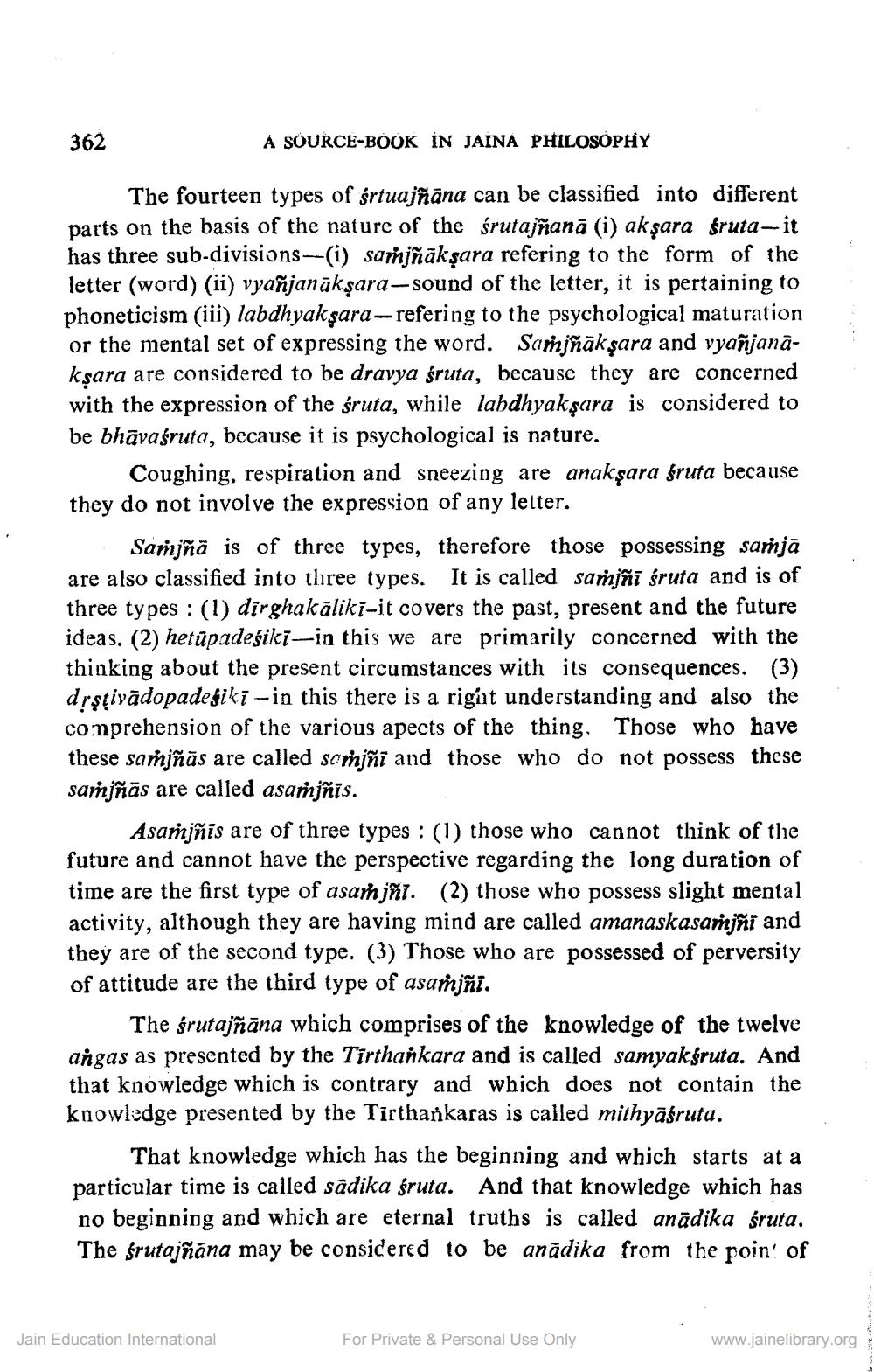________________
362
À SOURCE-BOOK IN JAINA PHILOSOPHY
The fourteen types of śrtuajñāna can be classified into different parts on the basis of the nature of the śrutajñanā (i) aksara śruta- it has three sub-divisions-(i) samjñākşara refering to the form of the letter (word) (ii) vyañjanākşara-sound of the letter, it is pertaining to phoneticism (iii) labdhyaksara-refering to the psychological maturation or the mental set of expressing the word. Samjñākşara and vyañjanaksara are considered to be dravya śruta, because they are concerned with the expression of the śruta, while labdhyaksara is considered to be bhāvašruta, because it is psychological is nature.
Coughing, respiration and sneezing are anaksara fruta because they do not involve the expression of any letter.
Samjñā is of three types, therefore those possessing samjā are also classified into three types. It is called samñi śruta and is of three types : (1) dirghakāliki-it covers the past, present and the future ideas. (2) hetūpadešikī—in this we are primarily concerned with the thinking about the present circumstances with its consequences. (3) drstivādopadegiki - in this there is a right understanding and also the comprehension of the various apects of the thing. Those who have these samjñās are called somjñi and those who do not possess these samjñās are called asamjñis.
Asamjñis are of three types : (1) those who cannot think of the future and cannot have the perspective regarding the long duration of time are the first type of asam jñi. (2) those who possess slight mental activity, although they are having mind are called amanaskasamjñi and they are of the second type. (3) Those who are possessed of perversity of attitude are the third type of asamjñi.
The śrutajñāna which comprises of the knowledge of the twelve angas as presented by the Tirthankara and is called samyakšruta. And that knowledge which is contrary and which does not contain the knowledge presented by the Tirthankaras is called mithyāśruta.
That knowledge which has the beginning and which starts at a particular time is called sadika śruta. And that knowledge which has no beginning and which are eternal truths is called anādika śruta. The frutajñāna may be considered to be anādika from the poin' of
Jain Education International
For Private & Personal Use Only
www.jainelibrary.org




